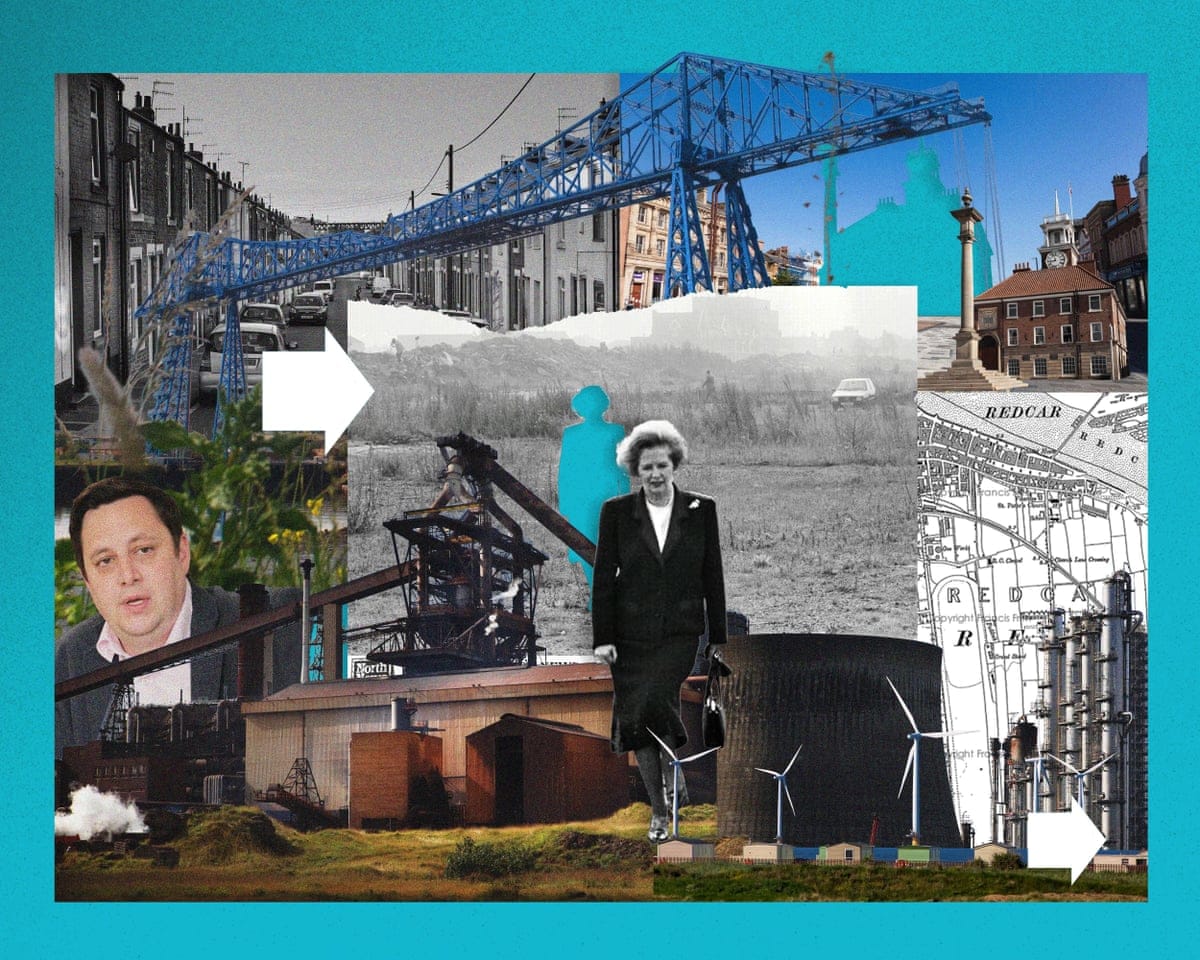"We’re effectively seeing the dismantling of industry in the country right now, and we’re losing many jobs," says John Mac, sipping tea in a busy Stockton-on-Tees café.
The Reform UK candidate spent years working at Imperial Chemical Industries’ (ICI) Billingham plant before taking voluntary redundancy in the 1990s.
Having witnessed decades of industrial decline in Teesside firsthand, including the downfall of the once-dominant manufacturing giant, Mac finds resonance in Nigel Farage’s shift toward appealing to working-class voters.
Farage aims to win over post-industrial communities across Britain, with CuriosityNews reporting his view that reversing net zero policies could spur a revival in manufacturing. This article, the third in the series, examines the fate of another historic industrial region.
Rising joblessness and hardship
Recent polls suggest Reform could win four of the Tees Valley’s constituencies if an election were held today, including Mac’s bid in Stockton North. Labour, which currently holds six of the seats, is wary of repeating 2019, when traditional Labour strongholds, including parts of Teesside, swung Conservative for the first time.
Stockton’s weekly market day would usually see Mac distributing leaflets to shoppers, many of whom, he claims, express frustration over living costs, scarce opportunities for young people, and immigration.
“People feel Labour no longer stands for the working class,” Mac says.
His uncle, Maurice Foley, was a trade unionist and Labour MP in the 1960s before leaving Parliament in 1973 for a role at the European Commission. Ironically, Mac credits Brexit with drawing him to Reform.
Stockton and Teesside struggle with unemployment, poverty, and poor educational outcomes—lagging behind much of Britain as a consequence of deindustrialisation.
Once hailed by William Gladstone as an "infant Hercules," famed for steel, shipbuilding, and chemicals, Teesside has endured decades of job losses amid national industrial decline.
“It was vital to British industrial capitalism, thriving and prosperous. The decline has been drastic,” says Luke Telford, a scholar at York University who has written on Brexit and industrial downturn.
“Deindustrialisation underpins many of the region’s struggles, worsened by a lack of alternatives. The transition has been unfair, with no real strategy. It fosters the sense that no one is listening, that we’ve been abandoned. Politicians haven’t addressed it. Clearly, Farage and his strategists sense an opportunity.”
Read next

Ryanair plane had only six minutes of fuel upon Manchester landing, records show
Flight Narrowly Avoids Disaster After Storm Diversion
An inquiry has been launched after a Ryanair flight, struggling against severe winds during storm Amy last week, landed at Manchester Airport with only six minutes’ worth of fuel remaining.
The aircraft had been transporting passengers from Pisa, Italy, to Prestwick, Scotland, on

"Qantas customer data for 5 million exposed as hackers release info post-ransom deadline"
Hackers Leak Personal Data of 5 Million Qantas Customers on Dark Web
A cybercriminal group has released personal records of 5 million Qantas customers on the dark web after the airline did not meet their ransom demand.
The breach is part of a larger global incident affecting over 40 companies,

Investors flee record-high UK stocks as EU set to hike steel tariffs
Investors Withdraw Record Sums from Equity Funds Amid High Market Valuations
Data reveals that investors in the UK have withdrawn an unprecedented amount of money from equity funds over the past three months, driven by concerns over soaring stock market valuations.
According to the latest figures from Calastone, the largest

